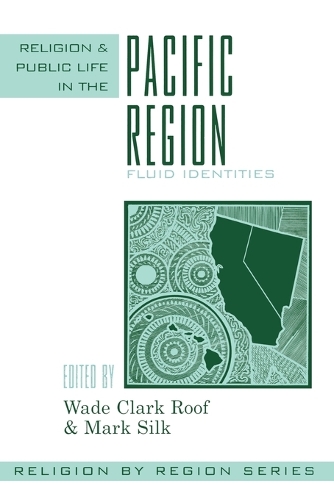
Religion and Public Life in the Pacific Region: Fluid Identities
(Paperback)
Publishing Details
Religion and Public Life in the Pacific Region: Fluid Identities
By (Author) Wade Clark Roof
Edited by Mark Silk
Contributions by Phillip E. Hammond
Contributions by George Tanabe
Contributions by Susan Frankiel
Contributions by Douglas Firth Anderson
Contributions by David Machacek
AltaMira Press
AltaMira Press
21st September 2005
United States
Classifications
General
Non Fiction
Social groups: religious groups and communities
200.979
Physical Properties
Paperback
208
Width 160mm, Height 228mm, Spine 12mm
327g
Description
'Pretty much like the rest of the country, only more so.' This quip from Wallace Stegner well-represents the Pacific region's religious culture. California, Nevada, and Hawaii emerged more recently, more quickly and with more diversity and fluidity than the other United States. Although influenced by Mexican Catholicism, Native Traditions, Asian Religions, and Euro-American Christianity, no religious tradition dominates, and a secular ethos usually reigns. But this very religious indifference makes California and the rest of the region open to all sorts of missionary movements and religious innovations. New organizational forms, new spiritual therapies, and new religious hybrids all compete for residents' attention along with secular ways for making meaning. With all these options, residents of the region mix, match, and move between religious identities more than other Americans. Without ignoring its diversity, Religion and Public Life in the Pacific Region highlights the key aspects of the region's fluctuating religions and its spirituality's impact on political life.
Author Bio
Wade Clark Roof is the J.F. Rowny Professor of Religion and Society and director of the Walter H. Capps Center for the Study of Ethics, Religion, and Public Life at the University of California at Santa Barbara. His major writings include American Mainline Religion, A Generation of Seekers, and The Spiritual Marketplace. He is the editor of the two-volume encyclopedia, Contemporary American Religion. Mark Silk is associate professor of religion in public life and founding director of the Leonard E. Greenberg Center for the Study of Religion in Public Life at Trinity College in Hartford, Connecticut.
